Happy Sunday and Saturday for the other part of the globe!
My pet Sugar was pregnant at an earlier stage of her life. I felt so worried about her situation. I didn't know how the life cycle of cats. I am just observing the lifestyle of Whitey, my favorite pet and he is a boy. I saw him mating or starting flirting with female cats before his one-year-old birthday. Please correct me if I am wrong but it matters to me.
Sugar gave birth to four kittens of different colors last October 10 after my birthday.
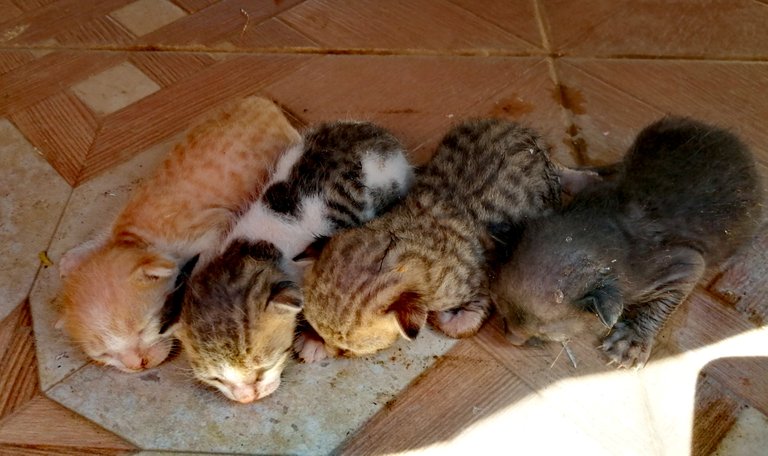
They are so healthy and so cute.
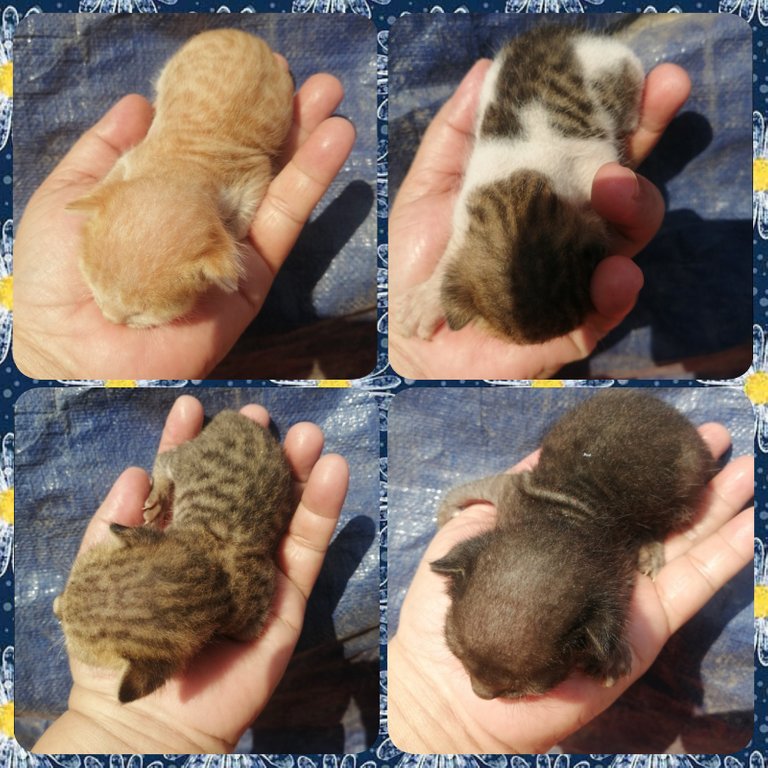
I hold them all one by one to show my love and took a picture. I wonder why the mother was not angry and she had no reaction once I hold her kittens. I thought she is still too young and as a human, there is no full responsibility on their part. How many cats had been given birth but I could not touch the newborn kitten. This is the first time I hold a newborn.
Sometimes mother cats will act aggressively toward people. These behaviors may include hissing, growling, swatting, and biting. Again, the mother is merely trying to protect her young. We evaluate mom cats for these behaviors before sending them into foster homes, but sometimes the behaviors develop later.
But, I saw something different from Sugar. She heard her kittens crying but she does not react until I decided to feed them with fresh milk. I just tried my best what could I do for the crying kittens.
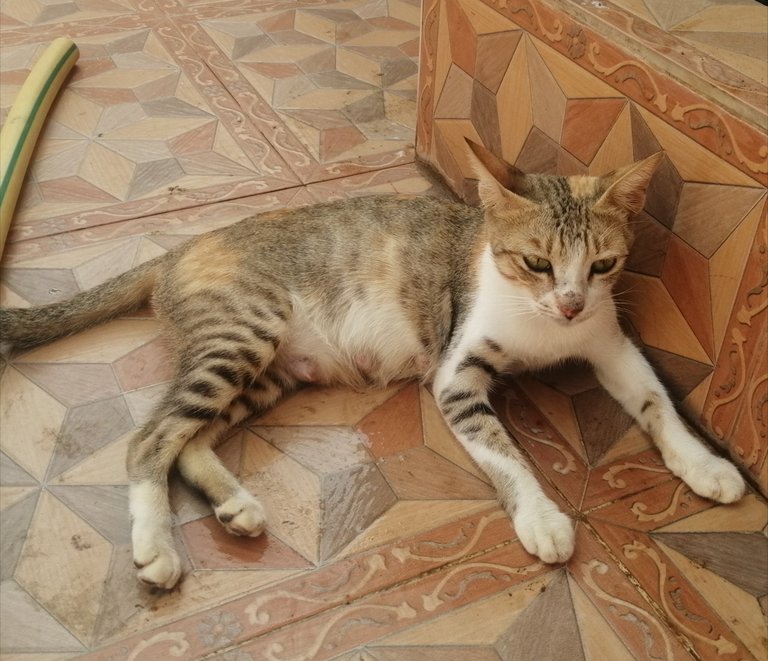
She is Sugar, the beautiful young mother.
I want to know why it happened? This is the first time that mother cat abandoned her kittens. So, I stopped on what I'm doing and know the reason. I made a research and here are the answers to all my questions.
SIGNS OF A CAT REJECTING KITTENS
By Susan Paretts | Updated September 26, 2017
A mother cat sometimes refuses to care for particular kittens in her litter or rejects the entire litter. After helping your cat through the birthing process, observe her behavior closely to ensure that any kittens she rejects you can care for yourself. Under some circumstances, you may be able to get her to care for the rejected kittens.
Rejection
Depending on the health of the kittens, a mother may reject those she feels will not thrive to ensure the survival of her other kittens. Mother cats may reject kittens with a medical issue or anatomical defect. Those cats who give birth to a large litter of six or more kittens may not be able to nurse all of the kittens, rejecting some out of necessity to feed the majority of the kittens. Also, a mother cat suffering from illness or poor nutrition may be unable to care for her kittens, leading her to reject them.
Behavior
After birth, a mother cat should begin nursing her kittens every one to two hours. The milk a mother produces after birth contains colostrum, a substance that contains antibodies to help protect the kittens from illness and give them rich nourishment. If you see that the mother ignores certain kittens, refusing to allow them to nurse, she is rejecting those kittens. Another sign of rejection is when a mother moves one or more of the kittens to a different location from the nest to isolate them. She also may hiss at the kittens or try to bite them.
Kitten Care
A mother may reject a kitten that is cold to the touch. Place a cold kitten on a hot water bottle wrapped in a towel and massage its body to increase its circulation. Try placing a chilled kitten that you have warmed back up with its mother to see if she accepts it. A kitten increases in size daily, but if you notice a kitten not gaining weight or growing properly, the mother most likely has rejected it. Undersized or warm kittens who the mother has placed aside and refuses to nurse require bottle-feeding; she may reject the entire litter if you place them back in the nest, according to the Purrfect Companions website.
Warnings
If you notice that a mother cat is refusing to nurse kittens over 4 weeks old, this is normal behavior; kittens are weaned from the mother's milk onto solid foods between 4 and 8 weeks. Do not handle kittens under 4 weeks excessively, as this may cause the mother to reject them because it removes the mother's scent. Handle them for 10 to 15 minutes at a time under the supervision of the mother cat. Take rejected kittens and the mother to a veterinarian for an exam to check for medical conditions, infections, or after-birth complications as the cause of the rejection. Bottle-feed and care for rejected kittens by hand.
Now, it is already clear in my mind that it is a normal behavior of some mother cats like what Sugar did to her kittens. So, I have to feed the kittens with milk using a syringe.
That's all about my pets and more stories next time for #caturday.
How I felt my heart so happy knowing all about the behavior of the cats. It made my day a #SublimeSunday by @coffe33a.
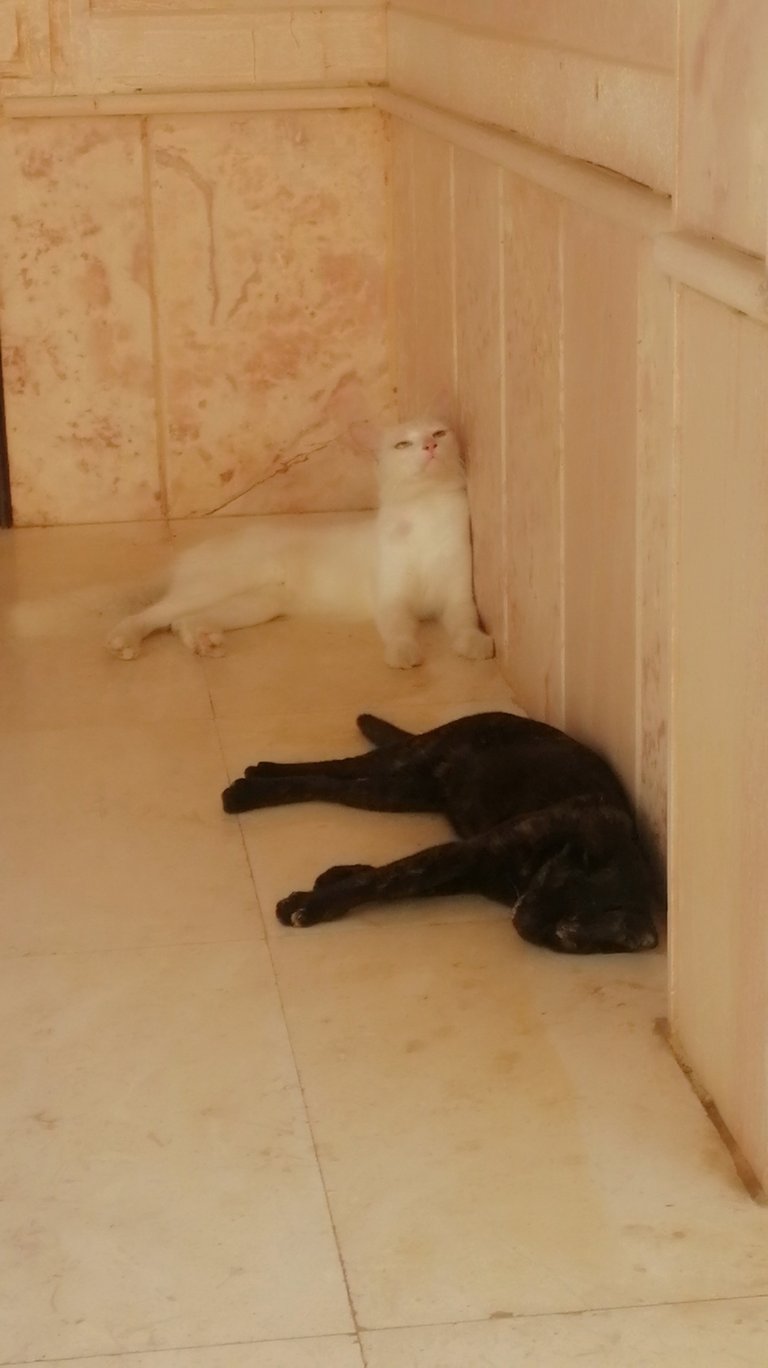
My Whitey and Blacky
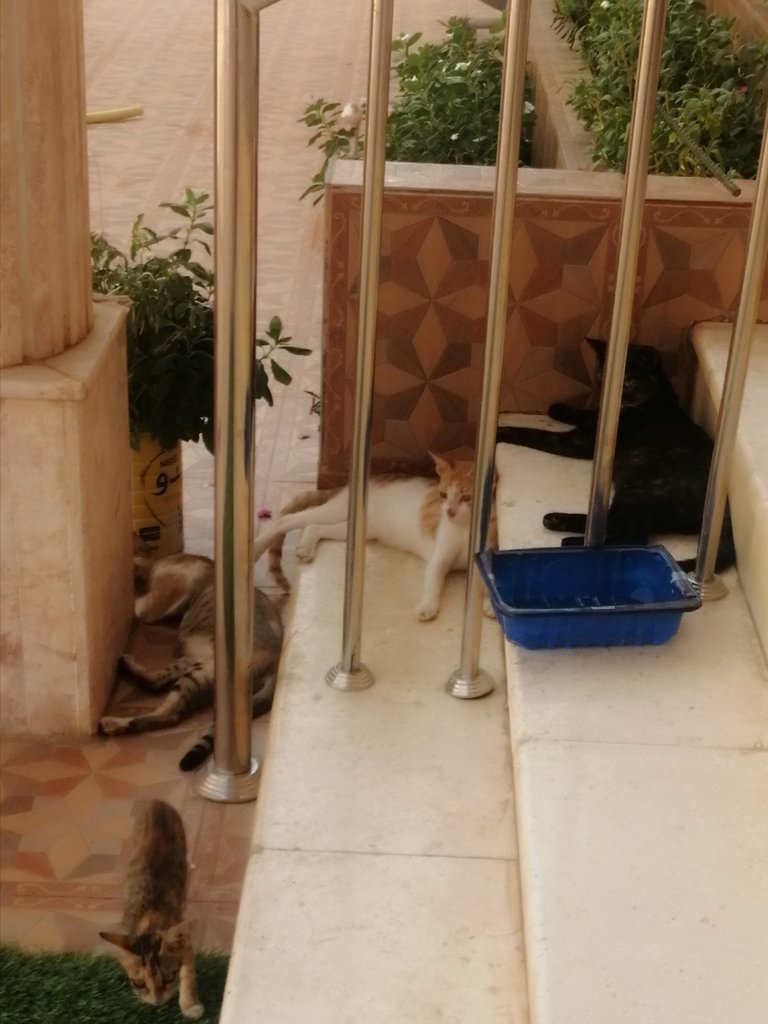
They are so relaxing after sipping the fresh milk.
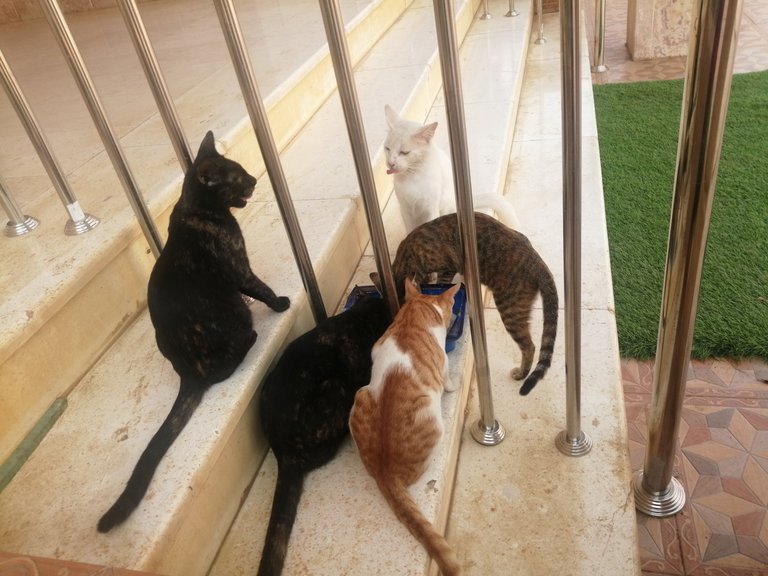
Happy they are sipping the milk.
Love your pet and even the stray cats like what I did!
Tgis is also my entry for the #amazingnature contest by @adalger.
